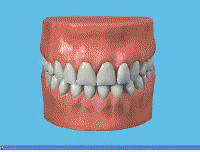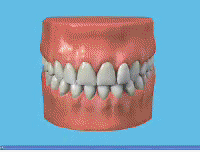London: Perfect Sweet announces the launch of a new, completely natural, low carb, low GI sweetener with a host of health benefits, making it perfect for dieters, diabetics, children, dental patients, mums-to-be and women at high risk of osteoporosis as well as anyone concerned about oral health and general well-being.
A deliciously sweet alternative to sugar for everyday use, Perfect Sweet is derived entirely from xylitol, a naturally occurring substance found in strawberries, plums and pears. Whilst it looks and tastes just as good as sugar, it offers a much healthier alternative.
Because xylitol releases its energy, much slower than any other sugar or sweetener, people who eat it in the place of sugar feel fuller for longer and are less likely to snack. This makes Perfect Sweet deal for diabetics or others for those on low GI diets who need to keep their blood sugar stable.
Xylitol contains 40% fewer calories than conventional sugar and has a GI (Glycemic Index) count of just seven, compared to conventional sugar (which has a GI of 49). That means you would have to eat up to seven times as much Perfect Sweet to have the same effect on your blood sugar or your hips. For those on a low carb diet, xylitol makes an ideal companion too, with it having 75% fewer available carbohydrates than sugar.
Perfect Sweet has a number of other surprising health benefits, which makes it much more than just another alternative to sugar. Added to a range of food and drinks such as tea, coffee, smoothies, cereals, fruit puddings or snacks, Perfect Sweet can turn everyday drinks and food into delicious health products.
We all know the consequences of our addiction to sugar: weight gain, mood swings, skin problems, diabetes, oral cavities and even infections such as overgrowth of Candida Albicans, which is though to lead to thrush and many other afflictions, says Edward Baylis at Perfect Sweet. But until now there just hasnt been a satisfactory, non-chemical alternative to sugar. The most exciting thing about Perfect Sweet is that for the first time we have a 100% natural, completely healthy product, that is not only as delicious as the stuff were used to, but actually delivers a host of positive health benefits. This is the kind of product parents will be encouraging their kids to eat!
Priced at £2.69 for a 225g pack, Perfect Sweet is available in selected Sainsburys, Tesco, Holland and Barrett and Waitrose stores. For more information www.perfectsweet.co.uk
More benefits of Perfect Sweet
Oral Health
One of the major discoveries in respect to xylitol was the discoveryfinding that when it iwas broken down in the mouth and stomach it produces an alkaline environment, rather than an acidic one , which like like sugar does. This means thatIn this alkaline environment the bacteria that cause tooth decay cant survive and decay is prevented. Thee alkaline environment which is created also favours calcium and mineral absorption so enamel decay is even seen to be reversed.
Osteoporosis
Increased calcium absorption in the stomach has led to studies observing a much improved bone density (stronger bones) when using xylitol regularly. This could be a potentially massive be a huge help for those living with conditions such as osteoporosis.
Bacterial and Yeast Infections
The killing of bacteria with xylitol, has further led to the discovery that ear infections, and other bacterial and yeast infections (such as thrush), can be prevented when using it. There has been particular interest in the use of xylitol to help prevent ear infections in young children.



